Does everyone really hate the UK at Eurovision? Here are the surprising stats
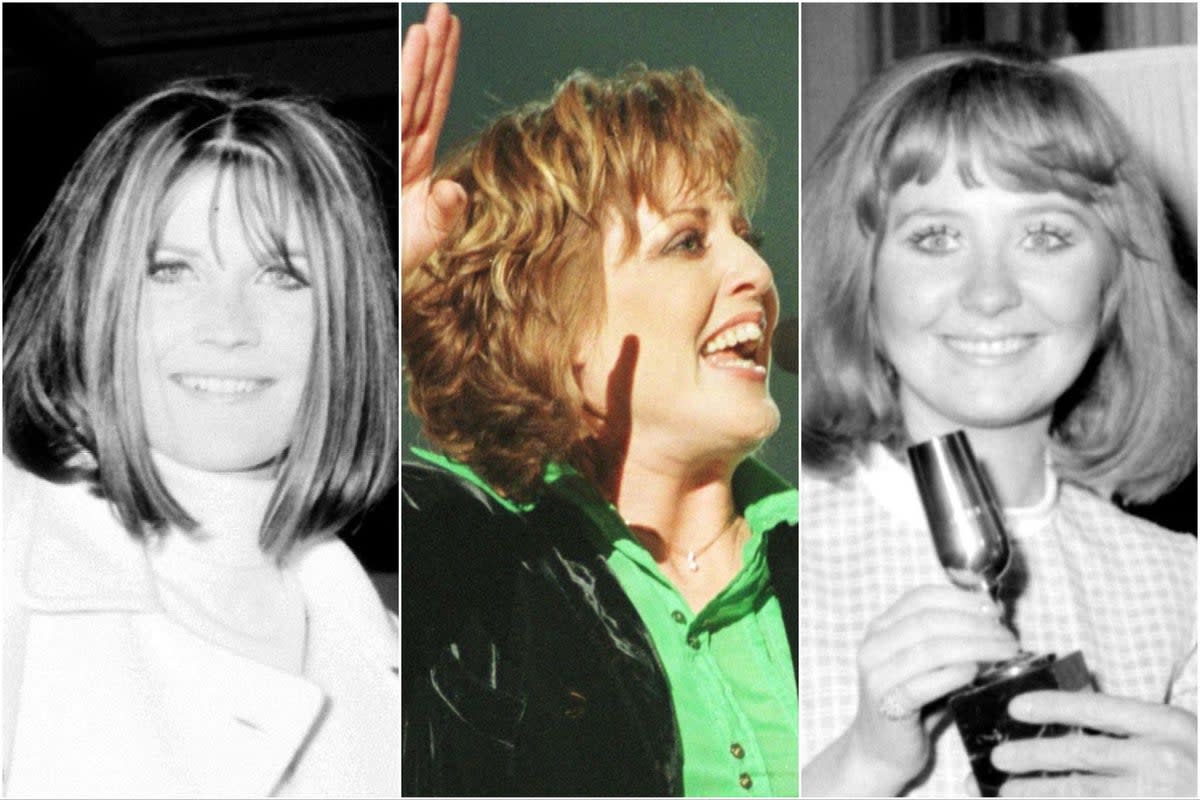
Anyone familiar with Eurovision will know that the UK is often regarded as the punching bag of the international event.
The UK is guaranteed a spot in the final thanks to its status as one of the “big five” countries that make the largest contribution to the event, which means that Brits are sometimes ridiculed for making it through to the main event no matter the quality of the performance.
But contrary to that belief – the UK has won the Eurovision Song Contest a total of five times, having first entered the competition in 1957, which places it just behind Sweden and Ireland, who jointly have the most Eurovision wins with seven each.
Entrants from the UK have also placed second in the final 16 times, a record in the contest.
Here, we look back at the UK’s winning moments:
The first win, 1967
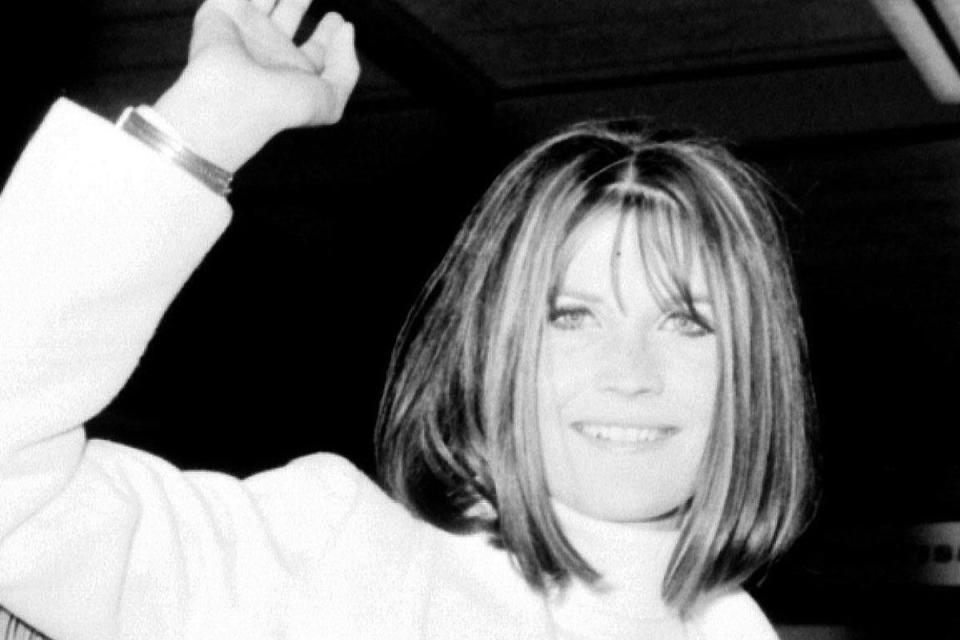
After five second-place finishes, the UK won its first Eurovision song contest in 1967, 10 years after the competition began, with bare-foot Sandie Shaw’s “Puppet On A String” and after that the decade brought forth more success for the country.
Shaw was awarded points from all the countries except for Spain and Yugoslavia and released a new version of her song last year for charity.
Lulu makes a bang, 1969
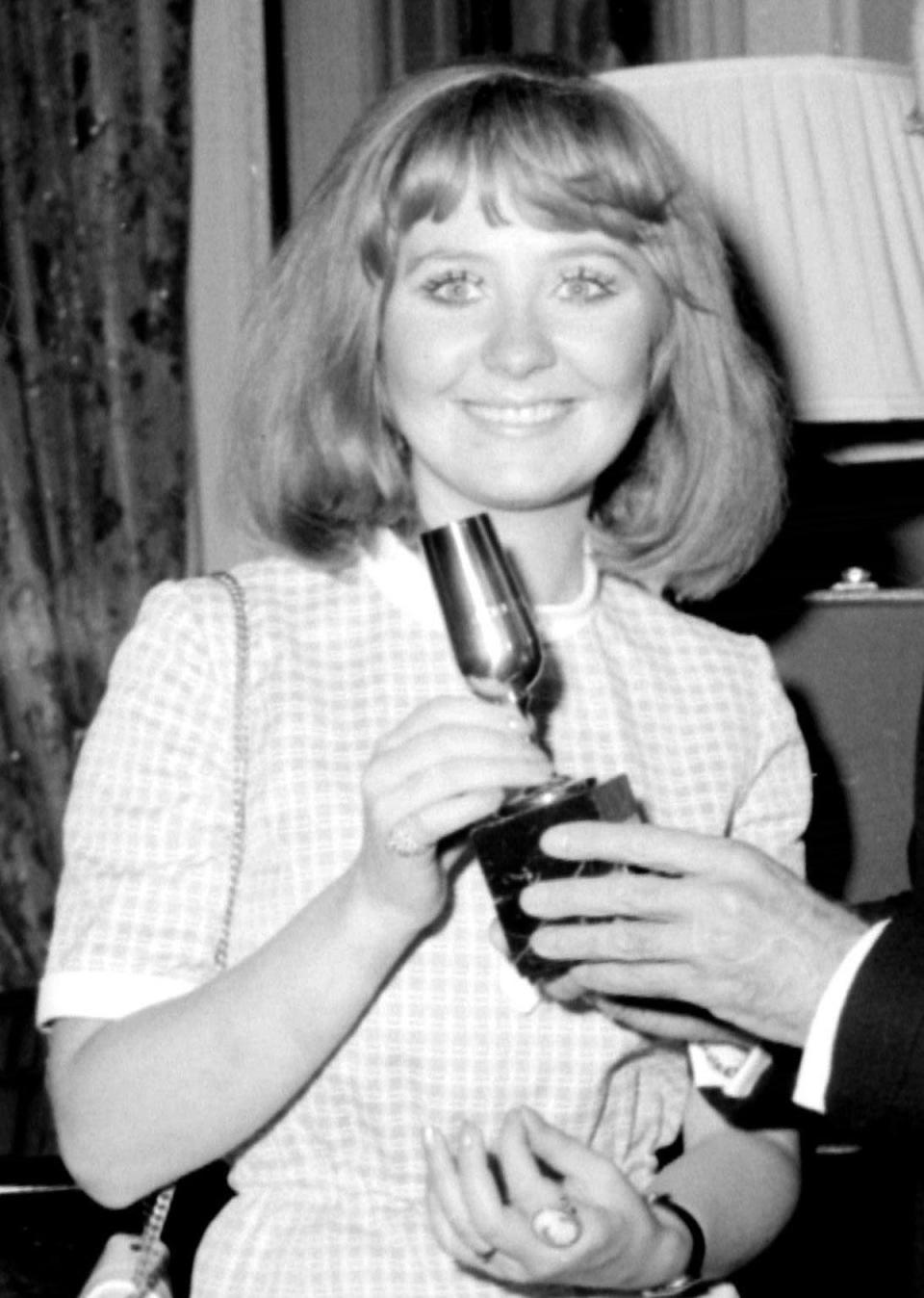
In 1969, Lulu represented Britain at the Eurovision Song Contest with the song “Boom Bang-A-Bang”. She became the first tied winner alongside the French, Spanish and Dutch entries, who were all on 18 points each.
The previous year Cliff Richard came second at 1968’s Eurovision, the first broadcast in colour, after his song Congratulations came second to Spain’s entry, “La, La, La” by Massiel.
He tried to avenge his defeat by competing in the 1973 contest with the song “Power To All Our Friends” and came third.
Another win, 1976
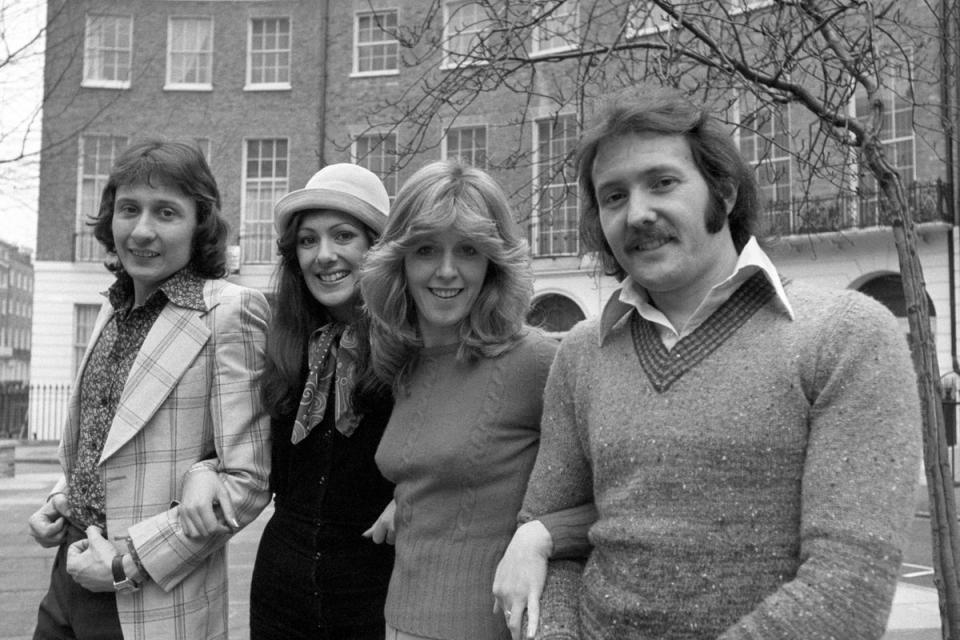
The 1970s saw a return to form for the UK as pop group Brotherhood of Man’s song “Save Your Kisses For Me” won the contest, and also topped the charts in 1976 with their winning song.
The band’s manager Tony Hiller put the song’s success down to their TV appearances across France, Belgium, Germany and Switzerland the year before the contest and the record sold six million copies, one of the best-performing of recent years.
A skirt-ripping dance routine, 1981
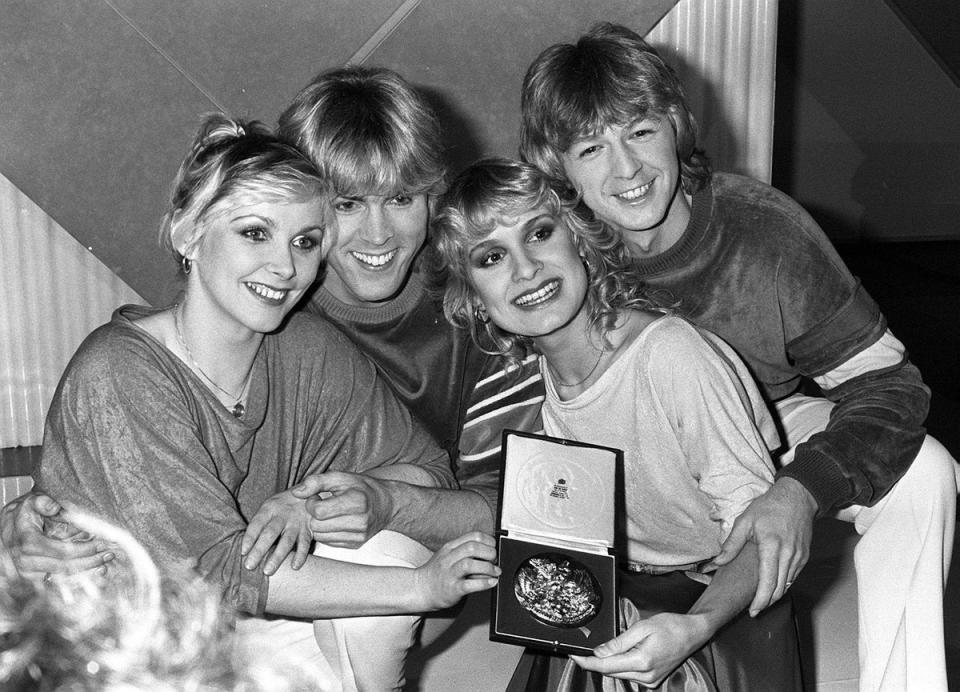
Pop group Bucks Fizz also scored a number one in the UK charts along with winning the 1981 competition with the upbeat “Making Your Mind Up” which featured a famous costume trick. The dance routine saw the male singers take off the female musicians’ skirts, revealing another one underneath, during the performance.
Katrina and The Waves wins, 1997
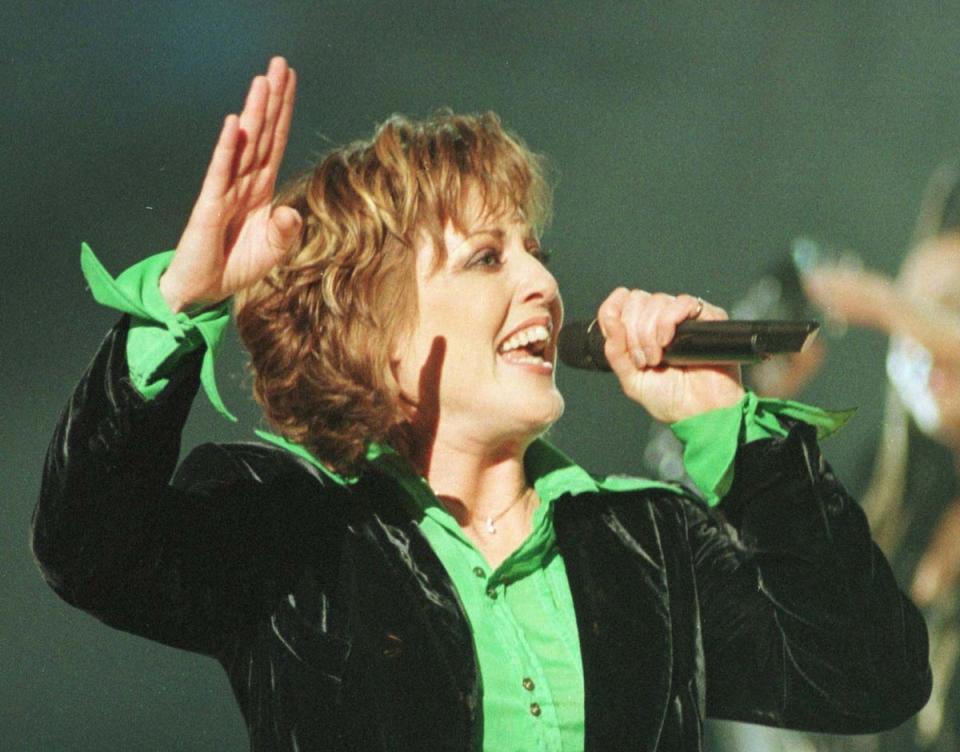
By the 1990s for the UK Michael Ball’s “One Step Out Of Time” and Sonia’s “Better The Devil You Know” had both finished second and the UK seemed out of luck.
However, the Katrina and The Waves song “Love Shine A Light” won in Dublin in 1997, causing Britons to dream once more that this contest was theirs for the taking.
Shortly afterwards, Imaani came second in 1998 with Where Are You? and Jessica Garlick achieved third place with Come Back in 2002.
The luck seems to be running out, the Noughties
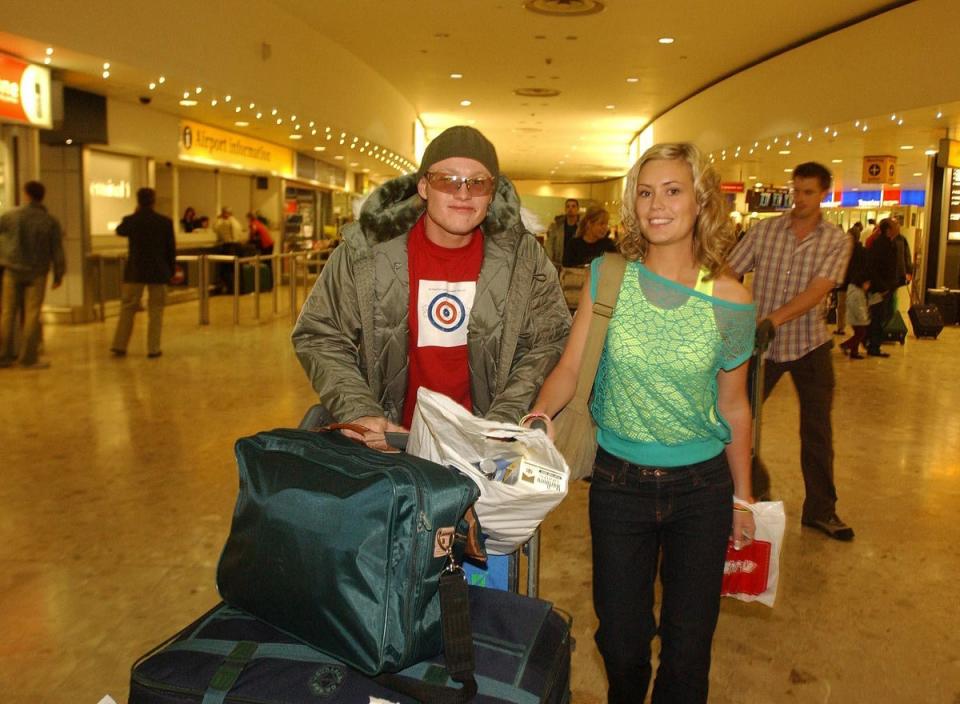
Dismay for fans followed in 2003, when “Cry Baby” by Jemini became the first UK song in Eurovision history that failed to score with group blaming their struggling performance and subsequent ‘nul points’ on audio problems.
The 2000s and 2010s were similarly two difficult decades for the UK’s waning success at Eurovision, with Andy Abraham, Josh Dubovie, Michael Rice and James Newman coming last from 2008 to 2019.
Sam Ryder pulls back the record (almost), 2022
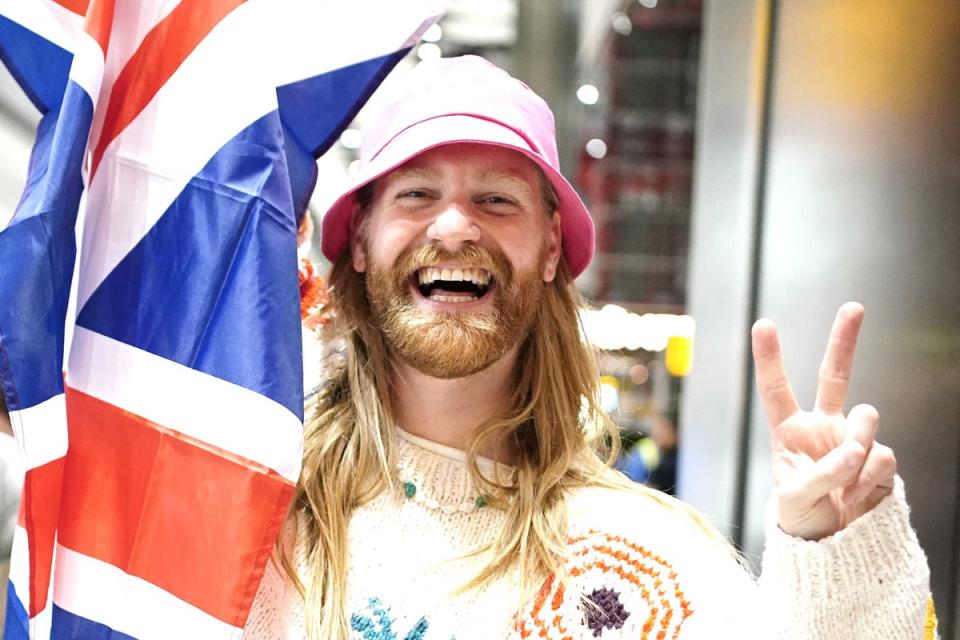
Though high-profile stars including Bonnie Tyler with “Believe In Me” (2013), Engelbert Humperdinck with “Love Will Set You Free” (2012) and Blue’s “I Can” (2011) took part there was no top-five winner since Jade Ewen’s “It’s My Time” (2009) until Essex singer Sam Ryder who raised the UK’s prospects in 2022.
Ryder entered the competition with his uplifting pop song “Space Man”, taking second place. The 34-year-old TikTok star topped the national jury vote with 283 points, beating favourites Spain and Sweden, but it was ultimately Ukrainian rap folk band Kalush Orchestra who took the trophy.
Fortunes were revived and the UK hosted in Liverpool on Ukraine’s behalf in 2023, but Mae Muller’s playful performance of her track, “I Wrote A Song”, came second to last, in 25th place with 24 points
This year, there are higher hopes for former Years & Years lead singer Olly Alexander and his catchy discoesque track “Dizzy”.
The Eurovision Song Contest grand final takes place on 11 May at 8pm. Find out everything you need to know about the competition here.
With additional reporting from Press Association.


